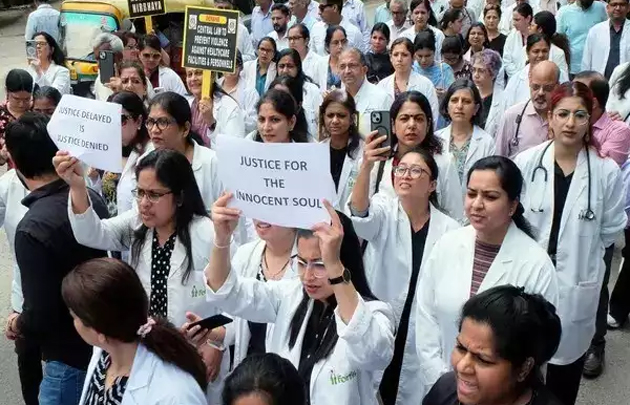Mehak Varun
We had seen the ‘Nirbhaya’ case. We had cried and felt helpless, candle marches were done, and strikes happened. And then? What for? Did any strong measure take place? The issue of women feeling unsafe persists, whether on the streets, at home, or on the work front. The question remains – where can women live safely, or is it safer for them not to live at all?
People say- ‘Girls, take the lead and leave your unique impression!’ How?
On our 78th Independence Day, we are still fighting for our ‘Right to live with dignity.’
Violence directed at women is a commonly occurring violation of human rights. In patriarchal societies, violence against women is a result of the unequal power dynamics between men and women. The root cause of this violence lies not just in individual behaviour but also in the overall structure of society. To stop violence against women, these underlying causes must be addressed and dismantled. Gender equality cannot be achieved until the structures that promote misogyny are dismantled, allowing women and girls to live without fear of violence.
Not long ago, it was reported that Iraq was considering passing a law to decrease the legal marriage age for girls to nine years old. What kind of society allows such a thing? Nine years old is still a young child!
Nirbhaya, the doctor in Kolkata, the women in Iraq, and every single woman, are all engaged in an ongoing battle for their fundamental rights to live with dignity and be treated as human beings. There is an outrage in the country, an outrage in the world; isn’t this ebullition genuine?
Women in the older times were treated with respect and honour. In ancient Indian society, women were regarded as equals to men without any discrimination based on gender. They were often referred to as Janani, meaning mother, and even as Devi in Hindu scriptures. Women had the same rights as men, including the opportunity to receive education and partake in spiritual practices alongside their husbands, known as Ardhangini or better half. They lived equally fulfilling lives and were considered symbols of protection and caretaking in society. Despite facing subjugation at times, women in ancient India experienced periods of liberation and were revered as the guardians of morality and values.
Throughout the history of India, from ancient times to the medieval era, the status of women has been constantly changing. In ancient India, women were considered equals to men and were highly educated, as seen through references to female sages like Maitreyi in early Vedic texts. The achievements of Sita symbolize the ideal role for women at this time. These women excelled in various fields, enjoying their rights and equality without any restrictions. They held significant wealth and property and had a strong influence in guiding their children. Yes, they also had to become Kali sometimes to honour their respect.
Sadly, in today’s world, every girl must embody Kali. Perhaps only then will there be meaningful progress in society.
The call for women’s empowerment emphasizes the importance of treating every individual with respect and ensuring their dignity and rights are protected. Women have endured discrimination and objectification, but as society progresses, more women can advocate for themselves. However, there are still marginalized groups of women who have yet to receive the same opportunities. It is our responsibility as human beings to help uplift and educate those in need, guiding them away from harmful beliefs that hinder societal progress. By empowering women and children through education, we can ensure they continue to pave the way for future generations and contribute to the advancement of our nation.
Yes, women have begun advocating for themselves, yet they continue to face obstacles such as sexual assault and being held back.
It is crucial that we begin educating men immediately, and it is long overdue. Harsh punishments should be put in place to make them think twice before committing such atrocious acts.
It is 2024! Are we progressing forward in time or regressing? It seems unlikely that we are going backwards, considering the advancements and sophistication of ancient times.
Simply chanting slogans like ‘Beti Bachao, Beti Padao’ is not enough. We need to take action and work towards achieving these goals; otherwise, it’s just empty words.
Ladies, stand up and be the change. We do not want to see any more Nirbhaya. We must refuse the stereotypes and replace negative ideas about feminity with positive thoughts and actions that celebrate it.
In words of Shirley Chisholm-
‘WOMEN MUST BECOME REVOLUTIONARY.
THIS CANNOT BE EVOLUTION BUT REVOLUTION.’


